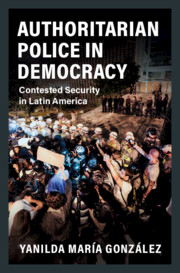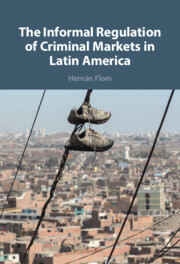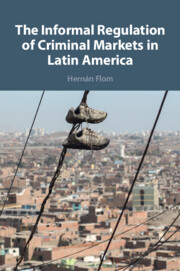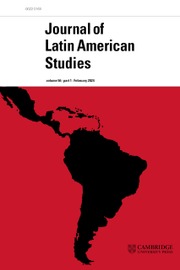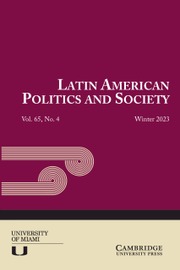Authoritarian Police in Democracy
In countries around the world, from the United States to the Philippines to Chile, police forces are at the center of social unrest and debates about democracy and rule of law. This book examines the persistence of authoritarian policing in Latin America to explain why police violence and malfeasance remain pervasive decades after democratization. It also examines the conditions under which reform can occur. Drawing on rich comparative analysis and evidence from Brazil, Argentina, and Colombia, the book opens up the 'black box' of police bureaucracies to show how police forces exert power and cultivate relationships with politicians, as well as how social inequality impedes change. González shows that authoritarian policing persists not in spite of democracy but in part because of democratic processes and public demand. When societal preferences over the distribution of security and coercion are fragmented along existing social cleavages, politicians possess few incentives to enact reform.
- Develops a theoretical framework to understand the structural power of police as political actors and to elucidate the tensions between police and democracy
- Provides comparative analysis of police reform and continuity over time and across three countries
- Brings together theoretically and substantively important debates across scholarly literatures that do not typically engage with each other
Reviews & endorsements
'In this remarkable, bracing, and deeply researched book, Yanilda González goes to the heart of a question that has remained one of the most important, and underexamined questions of this century: why do the corrosive policing practices and the rampant state violence of authoritarian regimes persist after the transition to democracy? Authoritarian Police in Democracy reveals that coercive institutional arrangements are not simply holdovers of an authoritarian past, nor are they incompatible with democracy, but owe their endurance to democratic politics itself.' Vesla M. Weaver, Johns Hopkins University
'Building on remarkable and difficult field work, this book examines the presence of authoritarian modes of coercion in the midst of otherwise democratic regimes. The analysis makes sense of the intractability of violent policing in democracies - policymakers are vulnerable to the leverage of police forces, which control the means of coercion; and they most often face little pressure for reform from electorates demanding more order and security. Timely and timeless, the book offers an invaluable look into the darkest corners of many contemporary democracies.' Daniel M. Brinks, University of Texas at Austin
'Authoritarian Police in Democracy is a breakthrough book for any scholar interested in policing, security, violence, and democratic politics. González develops an original and compelling theory of authoritarian coercion in democratic regimes and traces the political challenges to police reform in three highly impressive case studies. In doing so, she powerfully illustrates how and why the distribution of repression and protection by police often reproduces social stratification, but also explains the conditions under which reform can and does occur. An extraordinary accomplishment.' Lisa L. Miller, Rutgers University
‘This book lays a marvelous foundation for all scholars, policymakers, and activists who are committed to advancing this critical mission, and González should be applauded for her wisdom, erudition, and savvy in sharing both the barriers and enablers to achieving such goals.’ Diane E. Davis, ReVista
‘… [a] very clear, timely, and well-researched book … a must-read for academics interested in understanding the drivers of institutional change, as well as activists and policy makers focused on devising more democratic security institutions.’ Lucía Tiscornia, Perspectives on Politics
‘… this is a good book. González offers critical and useful insights into the so-called hard problem of police reform. … The book is not just about the demerits and problematic implications of authoritarian policing but also about how police reforms, as political processes, are either enacted or not. To have shown the path is, in my opinion, the principal achievement of the book. As police reform efforts and debates are, in my view, destined to continue in the region, González’s book is by default destined to be a reference in these debates.’ Carlos Vilalta, American Journal of Sociology
Product details
November 2020Adobe eBook Reader
9781108908450
0 pages
This ISBN is for an eBook version which is distributed on our behalf by a third party.
Table of Contents
- 1. Police: authoritarian enclaves in democratic states
- 2. Ordinary democratic politics and the challenge of police reform
- Part I. Persistence:
- 3. Institutional persistence in São Paulo state: authoritarian policing by democratic demand
- 4. The endurance of the 'damned police' in Buenos Aires province
- 5. Policing in hard times: drug war, institutional decay, and the persistence of authoritarian coercion in Colombia
- Part II. Reform:
- 6. 'New police', same as the old police: barriers to reform in São Paulo state
- 7. The social and political drivers of reform in Buenos Aires province and Colombia
- 8. Conclusion: inequality and the dissonance of policing and democracy.

